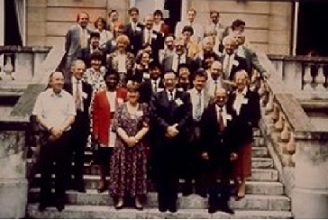About quality of life and the WHOQOL Group
What is quality of life (QoL)?
International research by the WHOQOL Group (1995; 1998) has shown that there is considerable agreement among many very different cultures that there is a concept which they understand as quality of life or similar. There is also high agreement among cultures about which features are common to a good quality life across the world, and which features are different but still important to particular cultures.
Some researchers have looked at 'objective' and often material factors that affect people's quality of life, like how much money adults of a particular country earn, or numbers of unemployed people. They use international comparisons of these types of data to make statements about a country's wellbeing. Similarly, in health care, numbers of Accident & Emergency admissions, and mortality rates for particular diseases, are monitored and reported as affecting quality of life. However, these 'objective' perspectives on quality of life do not take account of how individual people themselves feel about things and what it means to them.
In the WHOQOL work we devised an assessment that people can use to record their own subjective thoughts about aspects of their quality of life. Such information about people's experience is often not very visible to other people, so the best way to find out is by asking them. These subjective views can be really important in deciding whether some people need more help and support than others. They can also help to evaluate the impact of treatments and other interventions, like pain management programmes, offered by health and social care.
The WHOQOL Group
The World Health Organization established The WHOQOL Group which is a collaboration of researchers and clinicians from many different parts of the world, who came together to discuss whether it might be possible to create a highly precise quality of life measure for cross-cultural use. It would contain common 'universal' features, and also allow each culture to add questions on important topics that were specific to their culture.
Defining quality of life
The WHOQOL Group defined quality of life as:
"An individuals' perceptions of their position in life, in the context of the culture and value systems in which they live, and in relation to their goals, expectations, standards and concerns. It is a broad ranging concept affected in a complex way by the person's physical health, psychological state, social relationships and their relationship to salient features of their environment." (1994) Spiritual quality of life has been added to the concept since and assesses quality of life relating to spiritual, religious and personal beliefs.
Based around the definition of quality of life proposed by the WHOQOL Group, a domain and facet structure for the assessment of quality of life and questions (items) were developed for the measure.
The WHOQOL definition has since been adopted by the World Health Organization as its official definition of quality of life, and has been used by the WHOQOL Group as a basis from which to develop a suite of questionnaires assessing quality of life for groups of people around the world.

